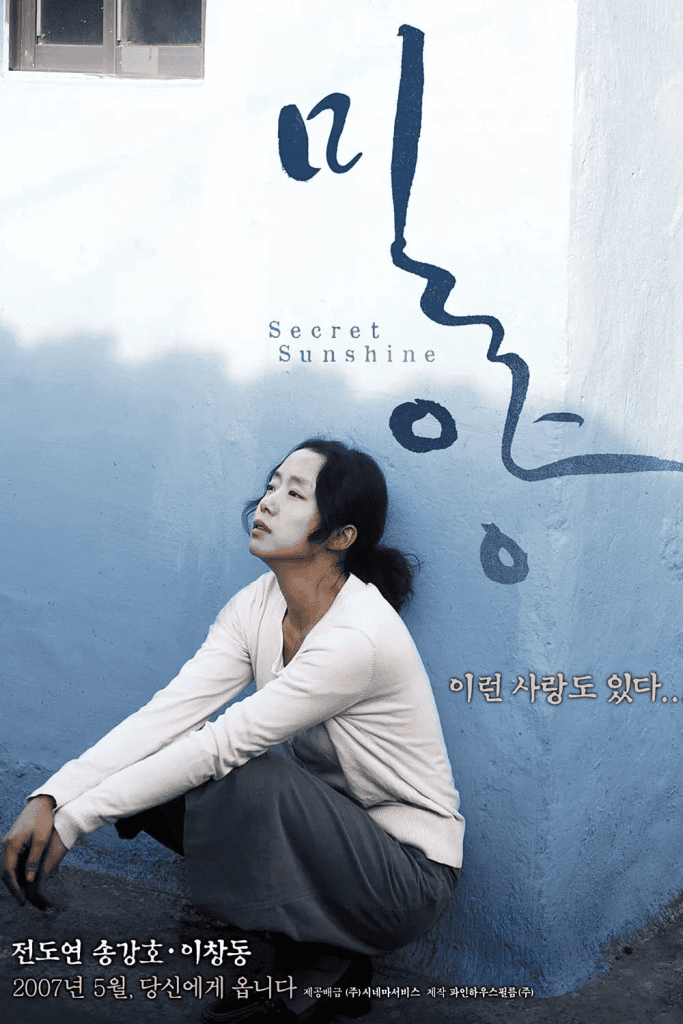Korean Cinema: From Local Stories to Global Stage
Once a hidden treasure of Asian cinema, Korean film has become one of the world’s most respected storytelling powers.
It balances raw emotion with technical mastery — blending tragedy, humor, and social commentary like no other.
From Bong Joon-ho’s sharp class satire to Park Chan-wook’s visual poetry,
Korean cinema has proven that local stories can speak to global hearts.


🥇 #1 Parasite (기생충, 2019)
No list is complete without Bong Joon-ho’s masterpiece Parasite.
It became the first non-English film to win the Academy Award for Best Picture, forever changing global cinema.
A sharp class commentary wrapped in dark comedy, Parasite explores inequality, ambition, and human desperation —
all set within the walls of one strange, unforgettable house.
“Once you overcome the one-inch barrier of subtitles,” Bong said,
“you will be introduced to many more amazing films.”

🩸 #2 Oldboy (올드보이, 2003)
Park Chan-wook’s Oldboy remains one of the most influential revenge thrillers ever made.
With its iconic hallway fight scene and Shakespearean tragedy, it brought Korean cinema to the world’s attention.
Raw, brutal, and visually stunning — it asks:
“How far can revenge go before it destroys the soul?”

🔍 #3 Memories of Murder (살인의 추억, 2003)
Bong Joon-ho’s second masterpiece, based on Korea’s first serial murders.
It’s not just a crime film — it’s a portrait of confusion, failure, and humanity in a changing nation.
Decades later, even after the real killer was found, the movie’s ending remains one of cinema’s most haunting questions.

💋 #4 The Handmaiden (아가씨, 2016)
Park Chan-wook’s sensual psychological thriller based on Sarah Waters’ Fingersmith —
but reimagined in Japanese-occupied Korea.
With its intricate structure, breathtaking visuals, and female-centered storytelling,
The Handmaiden is both erotic and elegant — a symbol of artistic freedom.

🚄 #5 Train to Busan (부산행, 2016)
If Parasite opened doors for Korean cinema, Train to Busan made the whole world run.
Yeon Sang-ho’s zombie thriller became a global blockbuster, redefining the genre with emotion and humanity.
It’s more than a survival film — it’s a metaphor for selfishness, sacrifice, and the fragile nature of empathy in crisis.
Few action movies can make you cry this hard.

💔 #6 Decision to Leave (헤어질 결심, 2022)
A noir disguised as a love story.
Park Chan-wook’s Decision to Leave is a masterpiece of restraint — a romance where glances mean more than touch.
Every frame is poetry, and Tang Wei’s performance turned longing into a cinematic language.
The film won Best Director at Cannes, cementing Korea’s position in global arthouse cinema.

👻 #7 The Wailing (곡성, 2016)
Part horror, part mystery, and part spiritual puzzle, The Wailing is Na Hong-jin’s terrifying masterpiece.
It mixes shamanism, folklore, and existential dread into a story that refuses easy answers.
For many international critics, it’s the most complex horror movie ever made in Asia.

👩👦 #8 Mother (마더, 2009)
Bong Joon-ho once again defied expectations with Mother,
a haunting story of a mother’s obsessive love and the lengths she’ll go to protect her son.
It’s an intimate crime drama wrapped in tragedy — a chilling meditation on guilt and maternal instinct.

🧬 #9 The Host (괴물, 2006)
Before Parasite, Bong Joon-ho terrified the world with The Host — a monster born from environmental neglect and human error.
It’s a rare mix of political satire, creature feature, and family drama — funny, scary, and deeply emotional.
This was the movie that made the world realize:
Korean cinema can do anything.

🌤 #10 Secret Sunshine (밀양, 2007)
Lee Chang-dong’s Secret Sunshine is a slow-burning masterpiece about grief, faith, and forgiveness.
Jeon Do-yeon’s raw performance — which earned her Best Actress at Cannes — remains one of the most powerful in Korean cinema.
It asks the hardest question:
Can forgiveness truly heal us, or does it just make the pain quieter?

🌏 The Legacy of Korean Cinema
Together, these films show why Korean cinema continues to inspire the world —
fearless storytelling, emotional truth, and universal themes wrapped in uniquely Korean contexts.
“Korean filmmakers don’t follow trends,” says a film critic.
“They create them.”
In every frame, you can feel the heartbeat of a country that turns pain into art and art into empathy.

Leave a Reply